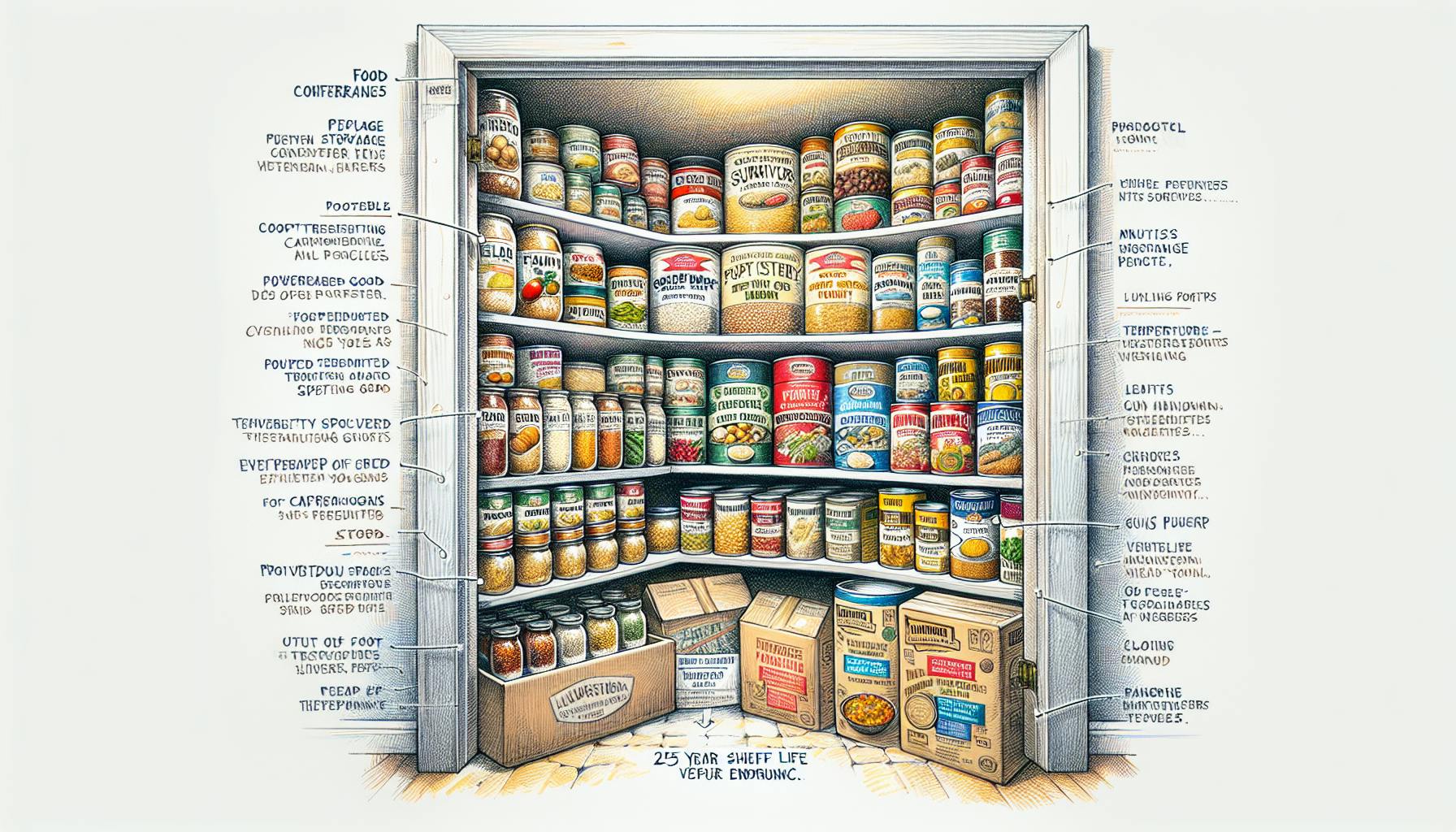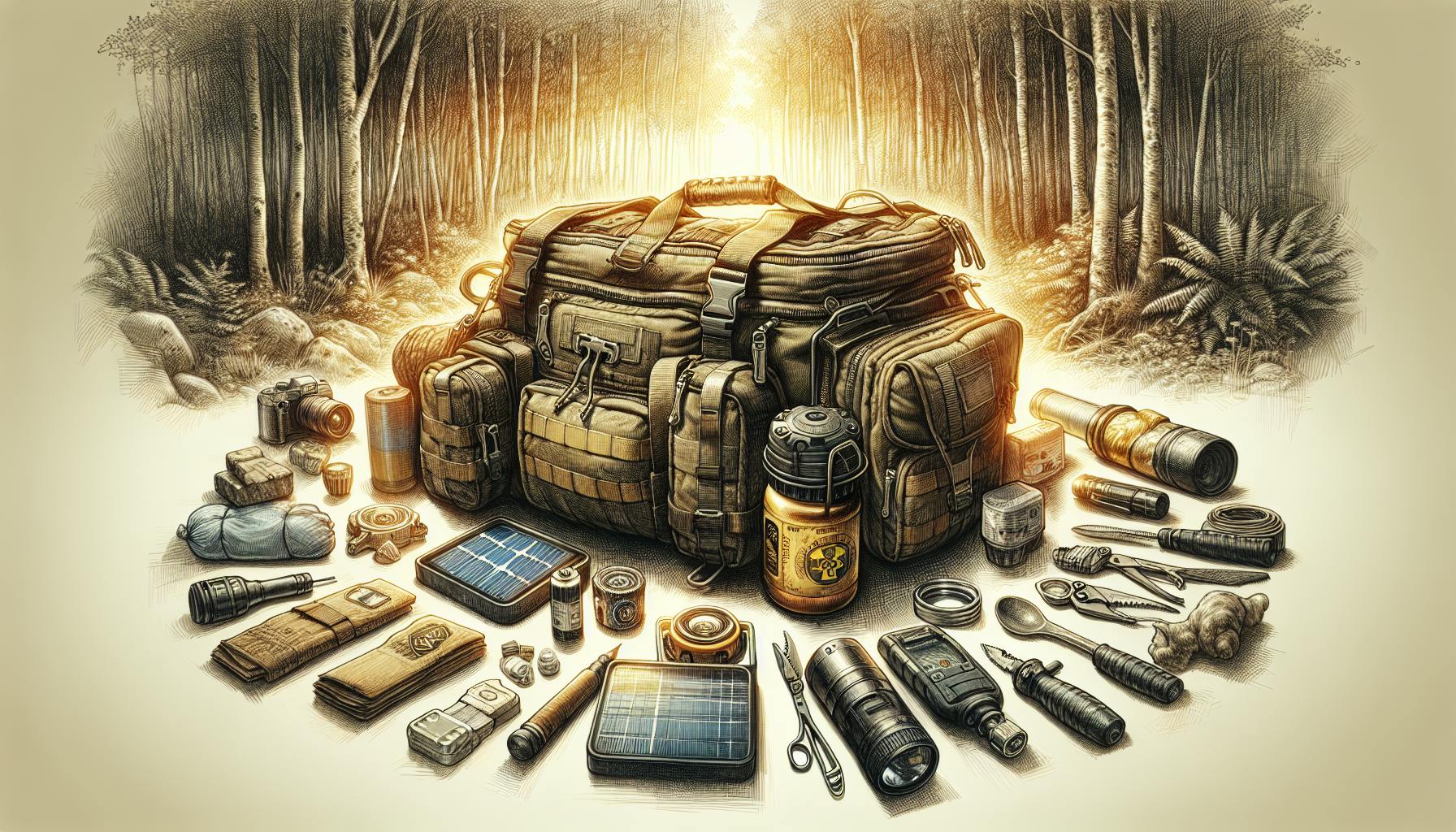Introduction
Prepping - stockpiling food, water, and other essentials in preparation for emergencies or disasters - has become increasingly popular in recent years. Many people turn to prepping out of a desire to become more self-reliant and ensure the safety of their loved ones. While responsible prepping can be beneficial, taken to extremes, certain prepping practices can be counterproductive or even dangerous. This article will explore problematic prepping habits, mindsets, and behaviors that could make emergencies worse instead of better. The goal is not to shame preppers, but provide constructive advice on avoiding detrimental practices. Readers are encouraged to reflect on their own prepping habits throughout.
Defining Responsible Prepping
Responsible prepping involves preparedness, self-reliance, and community-mindedness. It means having reasonable stocks of essentials, useful skills and training, and a focus on weathering crises safely. Responsible preppers avoid hoarding, isolationism, paranoia, and aggression. Their goal is resilience for themselves and their communities. Examples include having extra food and water, backup power and comms, medical training, and participating in neighborhood watch groups. This strengthens local support networks and benefits everyone. Such responsible prepping aligns with WeLovePrepping's mission of community-focused preparedness.
Problematic Prepper Mentalities
Unfortunately, some preppers adopt counterproductive mindsets of paranoia, aggression, and self-centeredness. Insidious "us vs. them" thinking and a bunker mentality of total self-reliance are unhealthy. These undermine community strength and resilience. More balanced perspectives aligned with sustainable preparedness are needed.
Hoarding and Stockpiling
Hoarding - amassing excessive supplies way beyond projected needs - is problematic. It often stems from fear, control issues, and isolationist thinking. Examples are hoarding thousands of rounds of ammunition, gallons of fuel, or shelves of antibiotics. Recently, prepper groups have even been purchasing entire hospital inventories of antibiotics and other crucial medical supplies, leaving hospitals unable to treat patients. The dangers of hoarding include causing shortages, price gouging, and false scarcity that negatively impacts communities. Responsible stockpiling based on calculated needs is far better.
Aggressive Tactics and Plans
Aggressive prepping tactics like armed 24/7 patrols, raiding plans, and heavily fortified bunkers demonstrate paranoia and vigilantism. Some groups have even taken over entire rural areas, threatening deadly force against any "intruders." These aggressive plans risk escalating violence, harming innocents, and fragmenting communities. Measured security and self-defense are prudent, but aggression is dangerous.
Prioritizing Self Over Community
A mentality of saving yourself at all costs - abandoning others, stealing supplies, withholding aid - causes social breakdown. This toxic individualism loses sight of community strength and resilience. Compassion and cooperation must be maintained. After Hurricane Katrina, some prepper groups actually raided Red Cross supply convoys instead of assisting relief efforts. This undermined the recovery.
Practical Tips for Responsible Prepping
Here are some tips for avoiding detrimental prepping and maintaining community-minded preparedness instead:
Develop Connected Support Networks
Connected prepper networks are far better than isolation. Pooling knowledge, skills, supplies, and labor creates resilience. Examples include communication networks and community food/water stores. This aligns with WeLovePrepping's ethos. Find like-minded local preppers to connect with. Studies show that communities with established social networks and relationships have recovery rates over twice as high after disasters compared to fragmented communities.
Stockpile and Conserve Responsibly
Watch for hoarding urges. Store only what you can properly maintain and rotate. Avoiding waste supports community preparedness. Focus on versatile, shelf-stable essentials in line with projected needs. Consider pooling resources with other preppers - this expands supplies available to the community during crises.
Focus on Practical Skills and Training
Develop useful skills like first aid, comms, and repair expertise - not just aggressive tactics. Cultivate resilience through hands-on training. Gardening, hunting, and foraging allow self-sufficiency when supplies run low. Medical skills will be in high demand. Kindness and cooperation are crucial skills too.
Plan Defense, Not Offense
Layered community defense like barriers, alarms, lights, and neighborhood watch groups is wise. Avoid armed aggression, as engaging threats should be a last resort. Establish warning systems, contingencies, and evacuation protocols. But maintain openness and avoid isolating your community entirely.
Build a Culture of Preparedness
Foster self-reliance and preparedness as a consistent lifestyle vs last-minute panic buying. Teach practical skills to family and community. Think marathon, not sprint. Work together to inventory skills and resources so your community knows what it has available to weather crises.
Conclusion
Responsible prepping avoids detrimental practices like hoarding, isolation, and aggression. It focuses on community-minded preparedness, cultivated through cooperation and practical skills. By prepping rationally and responsibly together, we can weather any storm. Let's reconnect with level-headed preparedness and each other. The path forward involves compassion, openness, and interdependence - not just stockpiles. With community-focused preparedness, we build resilience that benefits all.


